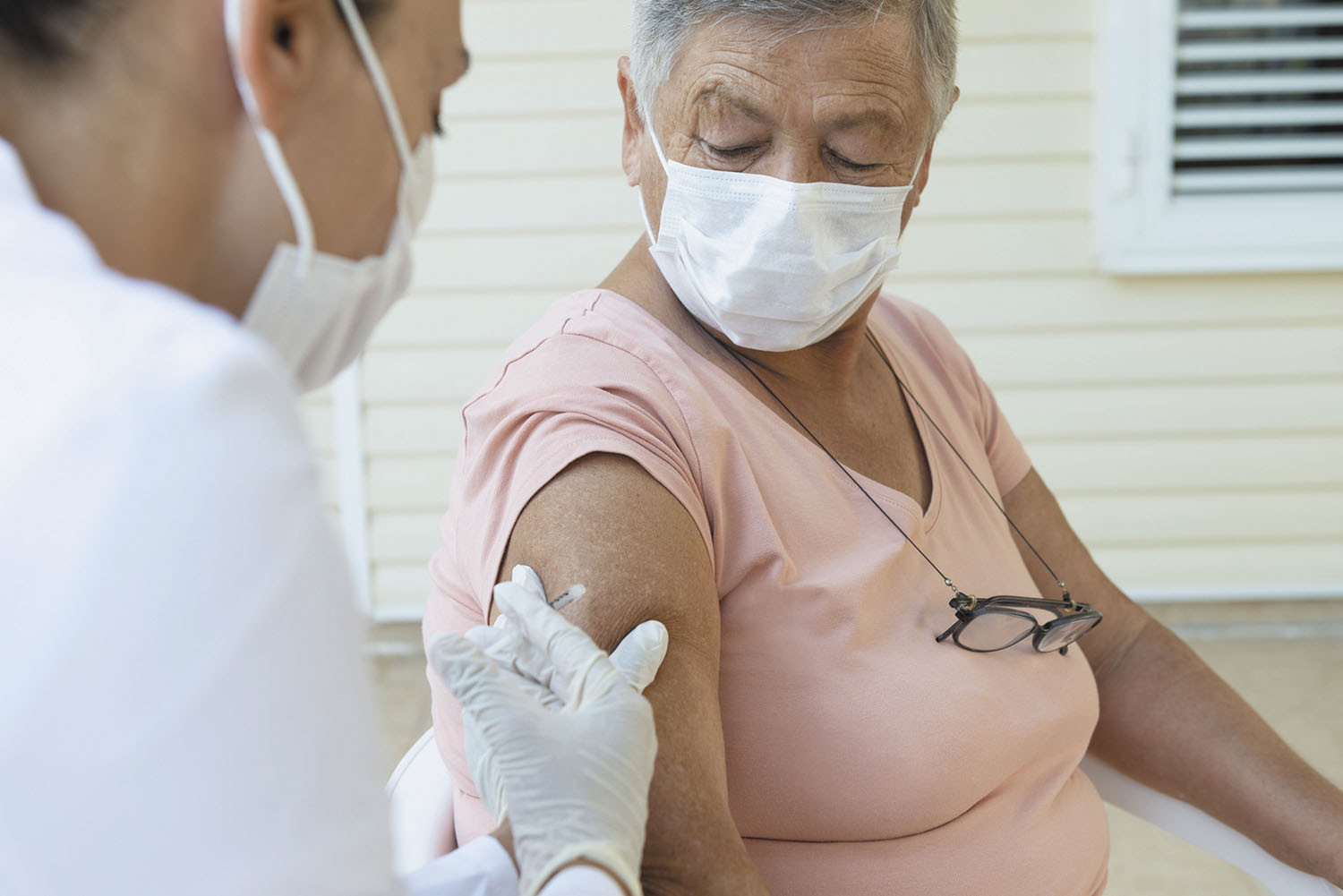
Dry socket: Preventing and treating a painful condition that can occur after tooth extraction

How is metastatic prostate cancer detected and treated in men over 70?

Could biofeedback help your migraines?

Plantar warts: Options for treating this common foot condition

Cancer survivorship: What comes next after treatment

Nutritional yeast: Does this savory, vegan seasoning pack a nutritional punch?

Salmonella is sneaky: Watch out

Two jobs may lower the odds of dying from Alzheimer's disease �� but why?

Mastitis: What to do when your breasts are painfully inflamed

How �� and why �� to fit more fiber and fermented food into your meals
Infectious diseases Archive
Articles
How can I avoid long COVID?
Tens of millions of people who've had COVID-19 suffer with persisting symptoms. The condition is called long COVID. Symptoms, such as fatigue, difficulty concentrating, and disrupted sleep, can seriously impair the ability to function at work and at home. Vaccines and antiviral drugs appear to offer some protection against getting long COVID. But more information is needed. The National Institutes of Health has committed over $1 billion to discover how to better diagnose, effectively treat, and ultimately prevent long COVID.
This unusual syndrome causes your heart to race when you stand up
A rapid heart rate—tachycardia—is a key feature of postural orthostatic tachycardia syndrome, or POTS, a mysterious condition that involves the nervous system and can cause a constellation of symptoms, including fatigue, shortness of breath, headaches, and brain fog, as well as pain in the chest, extremities, or elsewhere in the body. At least half of all cases of POTS are thought to be triggered by an infection (such as mononucleosis), which then spurs inflammation or an autoimmune response. Treatment includes drinking lots of water, eating lots of salt, and graded exercise training.
Can we prevent urinary tract infections?
Scientists are testing potential vaccines that aim to prevent urinary tract infections (UTIs). Until then, strategies that may help ward off UTIs include drinking lots of water each day, emptying the bladder after sexual intercourse, using vaginal estrogen creams (for women), wiping front to back after gong to the bathroom (for women), taking a daily long-term, low-dose antibiotic, taking a single dose of an antibiotic after sex (if recurrent UTIs often follow sexual intercourse), or taking cranberry supplements.
Lessons learned from COVID
While the COVID pandemic changed how many people approached their health, the experience offers a teachable moment about how people can maintain new and improved healthy habits. Four areas that were most affected by COVID and enabled people to create positive changes are exercise, diet, medical check-ups, and social connections.
Healthy habits might ward off long COVID
A 2023 study suggests that women who practice many aspects of a healthy lifestyle are about half as likely as women who don't to experience persistent symptoms after a COVID-19 infection.
Babesiosis: A tick-borne illness on the rise
While Lyme disease is the most commonly reported tick-borne illness in the United States, a report from the CDC shows that ticks that cause babesiosis are appearing in more parts of the Northeast and Midwest.
Is biting my nails really that bad?
Nail-biting can introduce germs into people's mouths that can cause a range of illnesses, including colds or salmonella. The habit also creates tiny fissures in skin that can become infected. People who bite their nails should occupy their mouth and hands with other tasks.
Why do we need new flu shots every year?
With influenza virus, a new vaccine must be developed each year to adapt to the virus's changing structure.
When an infection invades the heart
Although uncommon, heart infections may trigger inflammation that can damage the heart. People should be aware of the risks and symptoms of the three main types: pericarditis (swelling and irritation of the protective, double-layered membrane that surrounds the heart, called the pericardium), myocarditis (inflammation in the middle, muscular layer of the heart), and endocarditis (inflammation that affects the heart’s inner lining or one or more of the heart’s valves).
COVID-19 or something else?
Many COVID-19 symptoms — such as fever, cough, or muscle aches — overlap with the symptoms of other respiratory conditions, such as influenza, a common cold, or asthma. But there are differences among the conditions. For example, a bout of the flu or a cold will not cause shortness of breath the way COVID-19 will. And while asthma can cause shortness of breath, it won't cause a fever or body aches the way COVID-19 will. A person who's experiencing concerning symptoms of respiratory illness should report them to a doctor.

Dry socket: Preventing and treating a painful condition that can occur after tooth extraction

How is metastatic prostate cancer detected and treated in men over 70?

Could biofeedback help your migraines?

Plantar warts: Options for treating this common foot condition

Cancer survivorship: What comes next after treatment

Nutritional yeast: Does this savory, vegan seasoning pack a nutritional punch?

Salmonella is sneaky: Watch out

Two jobs may lower the odds of dying from Alzheimer's disease �� but why?

Mastitis: What to do when your breasts are painfully inflamed

How �� and why �� to fit more fiber and fermented food into your meals
Free Healthbeat Signup
Get the latest in health news delivered to your inbox!
Sign Up











